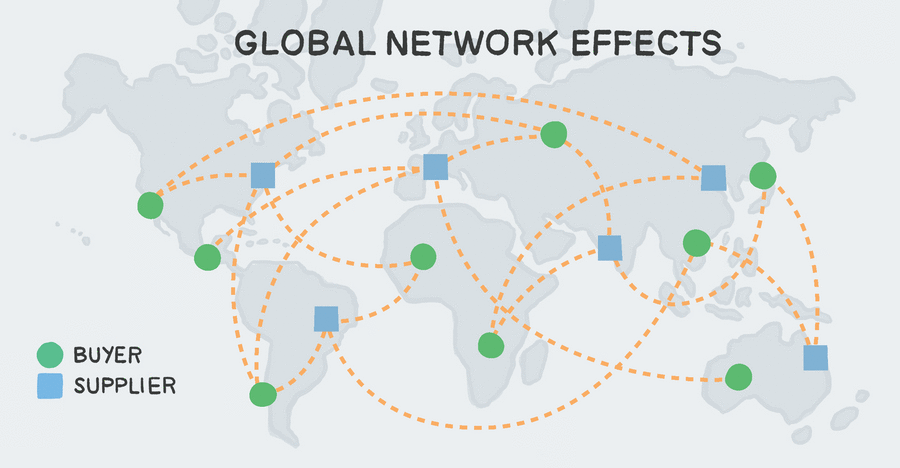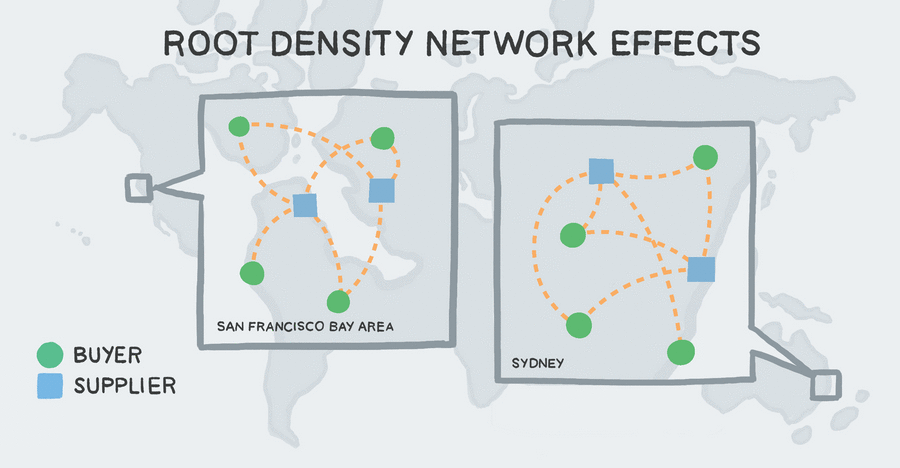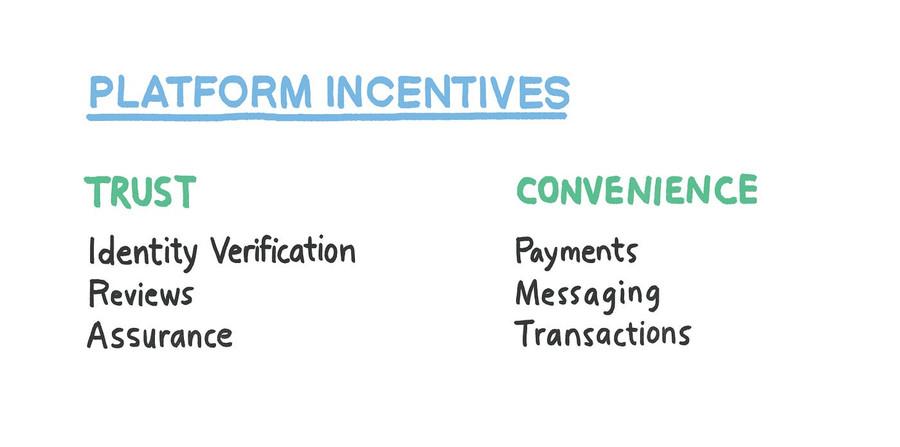Four Questions Every Marketplace Startup Should Be Able to Answer
Curated from: medium.com
Ideas, facts & insights covering these topics:
8 ideas
·351 reads
16
Explore the World's Best Ideas
Join today and uncover 100+ curated journeys from 50+ topics. Unlock access to our mobile app with extensive features.
Four key factors that shape every marketplace
There are four key factors that shape every marketplace:
- network effects;
- type of supply;
- incentives;
- size and frequency of interaction.
Understanding those factors — and structuring your platform accordingly — can make the difference between a wildly successful marketplace and one that never gets off the ground.
7
110 reads
Definition of a marketplace
Simplistically, a marketplace is a place where buyers and sellers meet to conduct commerce. In the online setting, that definition still holds true — online marketplaces give buyers a choice in what they would like to buy and sellers a variety of people to sell to. I classify Airbnb as a search marketplace, where the guest selects where they will stay, choosing what to “purchase” in the marketplace.
In recent years, the definition of a marketplace has stretched to include on-demand models that are considered marketplaces because of the independent contractor relationship on the seller side.
7
44 reads
Advantages and Disadvantages of marketplaces
Advantages:
- They involve low capital costs, as inventory is brought to the market from the suppliers.
- The market can self-correct by offering more of the good or service as buyers demand it more, making each marketplace function like a mini economy.
Disadvantages:
- Because marketplaces need a certain amount of supply from day one, they are super hard to start.
- It is hard to control the quality of inventory.
7
40 reads
1. Type of Network Effects: How will your marketplace grow?
All marketplaces exhibit a form of network effects, where each additional user on either the demand side or the supply side enhances the utility of the network for all users.
Airbnb has global network effects because travel is global. Companies like DoorDash and TaskRabbit have root density network effects - each market grows independently of another. Supply gains little value from demand growth in another market, and demand gains little from supply developing in another market. These businesses grew from being the first mover in each market, then aggressively building supply, city by city.
7
34 reads
2. Homogeneous vs. Heterogeneous Supply: Is your startup a search marketplace or a matching marketplace?
Another factor that dictates the dynamics of the marketplace tremendously is the uniqueness of your supply.
Airbnb offers heterogeneous supply, meaning that each listing is unique. This creates a competitive moat — it is hard to replicate that supply — and an inherent advantage to Airbnb. Heterogenous supply generates cognitive load. Many other marketplaces offer homogeneous supply, meaning that one supplier’s goods are roughly indistinguishable from another’s. Unfortunately, that makes it easier to replicate the business, as the supply is not unique and can be quickly copied (think Uber)
8
36 reads
Homogeneous vs. Heterogeneous - continued
Heterogeneous - search marketplaces, guests are responsible for finding their desired listing. Once you have unique supply, it is up to the product team to build a compelling demand-side product experience that simplifies search, creating as much of a one-click purchasing experience as possible.
Homogeneous - matching marketplaces, where demand doesn’t care which supply they receive as long as it is above the standard.
Homogeneous marketplaces compete on other aspects of the product offering, like price, greater loyalty, brand distinction, or what values the marketplace ultimately stands for
8
32 reads
3. Two-Sided Incentives: How will you keep both buyers and sellers in the marketplace?
There are two broad incentives to keep transactions on the platform: trust and convenience.
Technology can bridge trust by offering:
- Identity Verification —Can I trust them?
- Reviews — What do other have to say about it?
- Assurance — If something happens, can I get help?
Technology can offer greater convenience by facilitating:
- Payments — Will I get my money or the product/serivce?
- Messaging — Can I easily communicate and reach out to the other party?
- Transactions — Did I buy the good or service? Did it reduce the burden of going back and forth multiple times?
7
28 reads
4. Size and Frequency of Interaction: What are the unit economics of your marketplace?
The size and frequency of interaction in a marketplace are paramount to its health. Frequency of interaction determines how much liquidity there is on the platform. . Larger-dollar transactions are better for the platform because they generate more economic activity. Some businesses are high dollar but low frequency. Airbnb fits squarely in this category. Every marketplace should strive to drive higher-frequency usage.
Liquidity is key. Making sure that transaction volume is thriving is more important to a new marketplace than getting the largest revenue per transaction.
7
27 reads
IDEAS CURATED BY
Liviu Lica's ideas are part of this journey:
Learn more about entrepreneurship with this collection
How to align stakeholders
Best practices in product management leadership
How to create value together
Related collections
Similar ideas
2 ideas
The Danger of Early Hype in Consumer Social
sarahtavel.medium.com
15 ideas
The inside story of Facebook Marketplace
lennysnewsletter.com
7 ideas
Read & Learn
20x Faster
without
deepstash
with
deepstash
with
deepstash
Personalized microlearning
—
100+ Learning Journeys
—
Access to 200,000+ ideas
—
Access to the mobile app
—
Unlimited idea saving
—
—
Unlimited history
—
—
Unlimited listening to ideas
—
—
Downloading & offline access
—
—
Supercharge your mind with one idea per day
Enter your email and spend 1 minute every day to learn something new.
I agree to receive email updates



